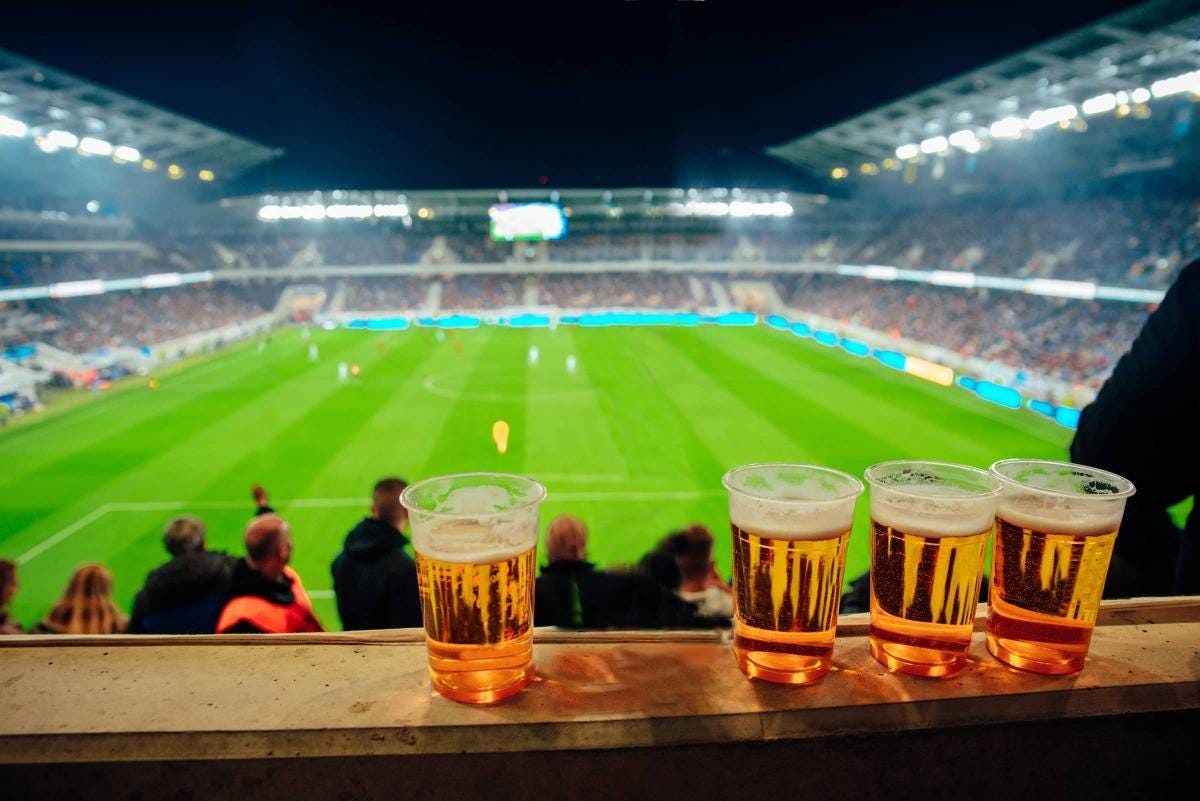No Alcohol Allowed at Saudi World Cup
Laws in Riyadh are very conservative on alcohol consumption, but it can be a real commercial problem for FIFA.
Few days ago The Guardian wrote that no alcohol will be allowed at 2034 World Cup in Saudi Arabia, and that FIFA has no plan to press local government to relax its laws. Fans will not be able to consume beer in the stadiums during the tournament, but even outside, if laws don’t change in this ten years.
Already in Qatar alcohol consumption was banned from inside the stadiums, but it was permitted in specific areas, such as the fan zone and in the upmarket hotels. In Saudi Arabia, however, the laws are more conservative: alcohol was totally banned from the country in 1952 with no exceptions. Only at the beginning of 2024 local government allowed the opening of one shop in which is possible to buy alcohol, but under sever regulation: is accessible only to non-Muslim diplomats, that have to register via an application and respect a strict consumption quota. It is not clear if this will be the first step in relaxing alcohol laws in the country or just a small concession for wealthy foreigners.
Alcohol at Saudi World Cup: a commercial issue for FIFA
The real point here is the issue with FIFA commercial aggreements. The global football organization has a long-standing deal with AB InBev - the company that owns Budweiser, Corona and Beck’s - signed in 1986 and that will last at least until 2026. In 2022, FIFA assured fans that consuming beer will be permitted inside Qatari stadiums, but just two day before the start of the World Cup Doha authorities changed their minds. FIFA had to pay then about €50 million in compensation to AB InBev. The deal with the multinational drink company guarantees to FIFA $20 million a year (about €19 million).
The renewal of the agreement, signed in June 2023, was expected: 2026 World Cup will be in North America, the key target market for AB InBev, and the increase in the number of matches will be another crucial factor for the company commercial plans. It explains why, despite of the Qatar incident, the deal went from $18.75 million a year to $20 million.
But the future is at risk: “This may be the last deal between FIFA and AB InBev, especially if Middle Eastern Countries like Saudi Arabia continue to be linked to hosting the World Cup. - said last year Conrad Wiacek, GlobalData Sport’s head of analysis and consulting - AB InBev will be reluctant to get into an agreement without guarantees that they can access the audience”.





